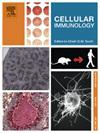Macrophages: Traffic centers in the tumor immune microenvironment
IF 2.9
4区 医学
Q2 CELL BIOLOGY
引用次数: 0
Abstract
The tumor microenvironment (TME) has emerged as a prominent focus of cancer research in recent years, with various drugs in this field, including programmed cell death receptor 1 (PD-1) antibodies and cytotoxic T lymphocyte antigen 4 (CTLA-4) antibodies, now included in first-line therapeutic guidelines for cancer. Although macrophages are not as effective as T-lymphocytes in directly killing tumors, they serve as critical mediators in the TME due to their indirect roles in promoting blood vessel formation, facilitating antigen presentation and influencing tumor cell metabolism to affect their infiltration. Macrophages are governed by complex regulatory networks, both independently and as a part of the TME. Extensive research has led to the development of a comprehensive and detailed understanding of these networks and the molecular mechanisms driving macrophage activity. The interactions between macrophages and the TME significantly impact tumor initiation and progression, making macrophages a promising target for cancer therapy. In this review, we discuss recent findings on the factors underlying macrophage polarization in the TME, the critical role of macrophages within the TME, key transcriptional regulators of macrophages, and emerging strategies for targeting macrophages in cancer therapy.
巨噬细胞:肿瘤免疫微环境的交通中心
肿瘤微环境(tumor microenvironment, TME)近年来已成为癌症研究的一个突出焦点,包括程序性细胞死亡受体1 (programmed cell death receptor 1, PD-1)抗体和细胞毒性T淋巴细胞抗原4 (cytotoxic T lymphocyte antigen 4, CTLA-4)抗体在内的多种药物现已被纳入癌症一线治疗指南。虽然巨噬细胞在直接杀伤肿瘤方面不如t淋巴细胞有效,但由于其间接促进血管形成、促进抗原呈递和影响肿瘤细胞代谢从而影响其浸润,因此巨噬细胞在TME中是重要的介质。巨噬细胞受复杂的调控网络控制,既独立又作为TME的一部分。广泛的研究导致了对这些网络和驱动巨噬细胞活动的分子机制的全面和详细的理解的发展。巨噬细胞与TME之间的相互作用显著影响肿瘤的发生和进展,使巨噬细胞成为癌症治疗的一个有希望的靶点。在这篇综述中,我们讨论了巨噬细胞在TME中极化的潜在因素,巨噬细胞在TME中的关键作用,巨噬细胞的关键转录调节因子,以及针对巨噬细胞在癌症治疗中的新策略。
本文章由计算机程序翻译,如有差异,请以英文原文为准。
求助全文
约1分钟内获得全文
求助全文
来源期刊

Cellular immunology
生物-免疫学
CiteScore
8.20
自引率
2.30%
发文量
102
审稿时长
30 days
期刊介绍:
Cellular Immunology publishes original investigations concerned with the immunological activities of cells in experimental or clinical situations. The scope of the journal encompasses the broad area of in vitro and in vivo studies of cellular immune responses. Purely clinical descriptive studies are not considered.
Research Areas include:
• Antigen receptor sites
• Autoimmunity
• Delayed-type hypersensitivity or cellular immunity
• Immunologic deficiency states and their reconstitution
• Immunologic surveillance and tumor immunity
• Immunomodulation
• Immunotherapy
• Lymphokines and cytokines
• Nonantibody immunity
• Parasite immunology
• Resistance to intracellular microbial and viral infection
• Thymus and lymphocyte immunobiology
• Transplantation immunology
• Tumor immunity.
 求助内容:
求助内容: 应助结果提醒方式:
应助结果提醒方式:


